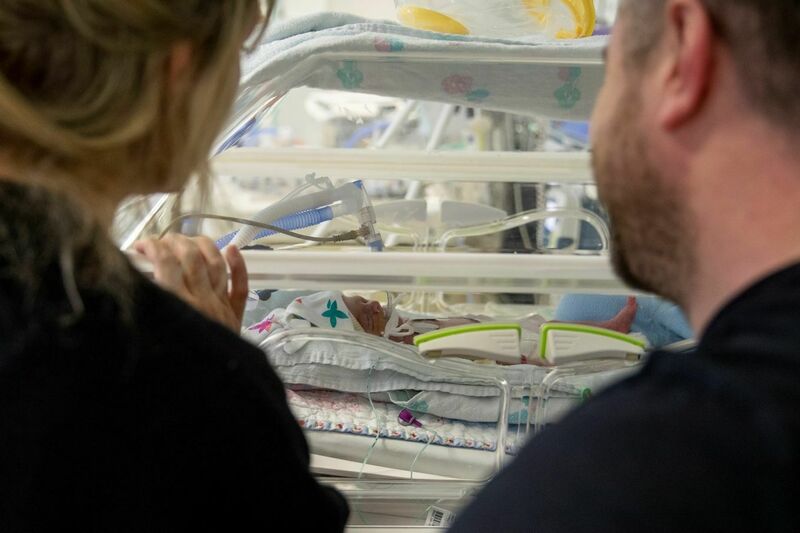My baby has been transferred to a different hospital, does that count as continuous care?
Yes. The time in which your baby is transferred still counts as neonatal care. So, if during a qualifying hospital stay your baby is transferred from one neonatal unit to another you qualify for Neonatal Care Leave.
My baby is receiving palliative care or end of life care, do I qualify?
Yes. If your baby is receiving neonatal care, palliative care or end of life care for at least 7 continuous days starting in the first 28 days of their life, you qualify for Neonatal Care Leave. This care may be provided within a neonatal unit, or another setting such as a hospice or at your home.
If you have accrued Neonatal Care Leave and your baby dies, you can take the leave within 68 weeks of your baby’s birth. This means that you will have time to take all your parental leave entitlements.
If your baby dies, you may also be entitled to Parental Bereavement Leave and Pay and your other parental leave rights.
I live in Northern Ireland, am I entitled to take Neonatal Care Leave?
No. The Neonatal Care Leave and Pay entitlement that starts on 6 April 2025 does not currently apply in Northern Ireland. New employment rights in Northern Ireland need to be passed through the Northern Ireland Assembly. A public consultation on Neonatal Care Leave and Pay closed in Northern Ireland in September 2024.
We expect that the Government in Northern Ireland will implement a new employment right for parents with a baby in neonatal care at some point, but we do not yet know when that will be or when parents in Northern Ireland will be entitled to use this.
Bliss has created a briefing to help employers introduce the entitlement (downloads as a PDF) before it becomes a requirement. Share this with your employer or HR department to encourage them to bring in their own Neonatal Care Leave and Pay policy in Northern Ireland. You can send them our letter of support (downloads as a PDF) which includes a link to the briefing.
Residents of Northern Ireland can also write to their MLAs (Members of the Legislative Assembly) to show their support for a new Neonatal Care Leave and Pay entitlement in Northern Ireland. Find the MLAs for your postcode on the WriteToThem website.
I am self-employed, do I qualify for Neonatal Care Leave and Pay?
No. Neonatal Care Leave and Pay is currently for employees only. Bliss is campaigning for the Government to provide similar support for parents who don’t currently qualify for Neonatal Care Leave and Pay.
I’m a job-seeker, do I qualify for Neonatal Care Leave and Pay?
You may qualify for Neonatal Care Leave and Pay while receiving Jobseekers Allowance (JSA) if you are classed as an employee. You may be classed as an employee if you are working up to 16 hours. You can check what your employment status is at ACAS.
If you are receiving Jobseekers Allowance (JSA), and either not in work, or you are working up to 16 hours but are not an employee, you do not qualify for Neonatal Care Leave and Pay.
Bliss is asking the Government to review guidance sent to job centres to ask that job-seeking requirements be suspended while a parent’s baby is receiving hospital care. Visit Citizens Advice for further information support.
What does this mean for Adoption and Shared Parental Leave?
The right to Neonatal Care Leave and Pay applies to parents taking Adoption Leave and those taking Shared Parental Leave.
Why has Neonatal Care Leave and Pay been introduced?
Bliss – together with many other charities and businesses – campaigned for this new entitlement to support parents and carers who have a baby in neonatal care.
It is to help parents spend more time with their baby and bond with them, be better involved in their care, and to reduce the financial pressures that often force parents to return to work sooner than they are ready. The government estimates this law will help support around 60,000 new parents every year.
A long stay in neonatal care can mean that statutory Parental Leave is used up before the baby has come home from the hospital or before a parent is ready to return to work. This is particularly relevant for fathers and non-birthing parents, who often only receive two weeks of Statutory Paternity Pay and Leave.
